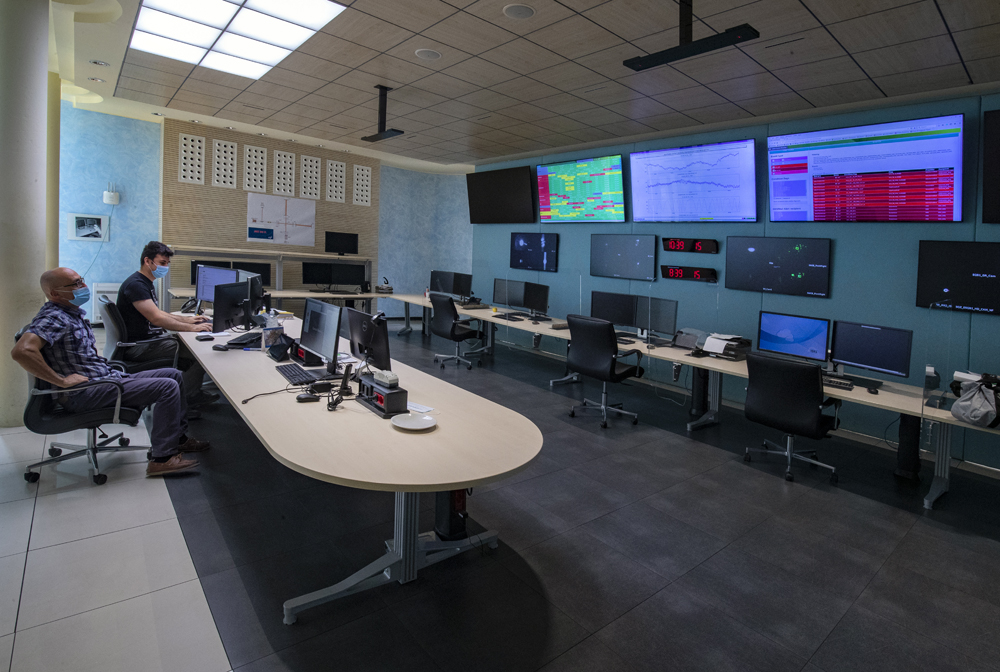Ego Virgo and UniPi launch a platform open to all to analyse data from the Universe
The European Gravitational Observatory of Cascina (PI) and the University of Pisa are launching GWitchHunters, an online platform with which citizens of all ages can make an important contribution to the analysis of data from the Virgo gravitational wave detector, participating in one of the most fascinating and exciting frontier research projects for the general public. The web platform, the protagonist of this ‘citizen science‘ initiative, was developed as part of the European REINFORCE project ( https://reinforceeu.eu ) and is fully accessible also in Italian. And for those who join by 21 February, there is the possibility of participating in a training course to be held in July in Athens.
All enthusiasts can join GWitchHunters: no specific skills or experience are required, just curiosity and a desire to contribute. To find out more and take part in the project, visit the dedicated page:
https://www.zooniverse.org/projects/reinforce/gwitchhunters
Thanks to GWitchHunters, also available as a smartphones app, it will be possible for everyone to get to the heart of Virgo’s data acquisition, studying, for example, glitches, spurious signals generated by seismic movements, atmospheric conditions or other phenomena linked to the environment or to the detector’s own instrumentation, which can affect the detection of gravitational waves. The signal coming from cosmic sources is very weak, and capturing it is like hearing a match drop in a disco: to do so, it is necessary to identify and remove music, people’s voices and all other ‘noises’ that cover the sound you are looking for. Among these noises, glitches are among the most difficult to eliminate, because their ‘signature’ can resemble that of a gravitational wave or hide their arrival.
Citizen science or ‘participatory science’ refers to an increasingly widespread practice around the world where everyone is involved in the work of scientific research, particularly where careful and meticulous analysis of large amounts of data is required. The participation of citizen-scientists naturally passes through the web, thanks to online platforms where, often almost as if in a simple game, one learns to recognise data, and then directly accesses the data from the instruments, so as to contribute to analysing and interpreting them and, in some cases, making real ‘discoveries’. In this way, for example, it has been possible in the past to discover new extrasolar planets or new species of animals.
“We asked the volunteers to analyse images representing the evolution in time and frequency of Virgo’s noise signals, and to identify in these images the characteristic ‘signature’ of glitches and classify their typology. – explains Professor Massimiliano Razzano of the University of Pisa, a member of the Virgo collaboration and coordinator of the citizen science project – Although there are automatic algorithms for studying noise, our eyes are a very powerful analysis tool for distinguishing the shapes associated with different types of signals. The contribution of enthusiasts will allow us to build a more complete database of information, which will be used to develop new algorithms based on artificial intelligence and thus to further improve the performance of the detector“.
GWitchHunters is hosted on Zooniverse, the world’s leading citizen science portal, and is also available for smartphones, simply by downloading the Zooniverse app and selecting the project from those proposed.
In just a few weeks since the launch of the initiative, more than 1,500 volunteers worldwide have signed up and 100,000 image classifications have already been completed. “This is testament to the extraordinary enthusiasm and curiosity surrounding the search for gravitational waves. We are confident that we will receive similar attention in Italy and, to make our project even more accessible to everyone, we have translated the entire project website into Italian“, concludes Razzano.
In addition, the project is taking part in the Winter Challenge, a challenge in which all those who analyse a minimum number of images by February 21st will be able to participate in the draw for four scholarships for the REINFORCE International Training Course, a training course dedicated to participatory science, which will be held from 10 to 14 July in Athens. More information is available on the page dedicated to the Winter Challenge.
“With the pandemic,’ said EGO Director Stavros Katsanevas, ‘it has become clear to everyone that access to scientific research data is one of the key aspects of the democratic coexistence and management of our society. Of course, data linked to frontier research, such as those from gravitational astronomy, do not play the same role as health data, but sharing them plays a decisive social function, because it teaches us to link education and research ever more closely. Stavros Katsanevas concludes: “I believe this is one of the most important lessons that has emerged from the pandemic crisis and has been picked up by citizen science projects such as REINFORCE.
The European REINFORCE project (GA no 872859) focuses on four topics related to modern physics: besides gravitational waves, it includes the study of neutrinos of astrophysical origin, elementary particles and cosmic rays for archaeological, geological and volcanological studies. REINFORCE has an important collaboration with Zooniverse, which has launched more than 250 projects ranging from astronomy to zoology. The development of REINFORCE will also benefit from the experience gained by GravitySpy, a citizen science project developed by American colleagues in the LIGO experiment, to which it aims to complement. The result will be four interactive portals with which all interested ‘citizen scientists’ can contribute to this research.
Direct link to GWitch Hunters:

